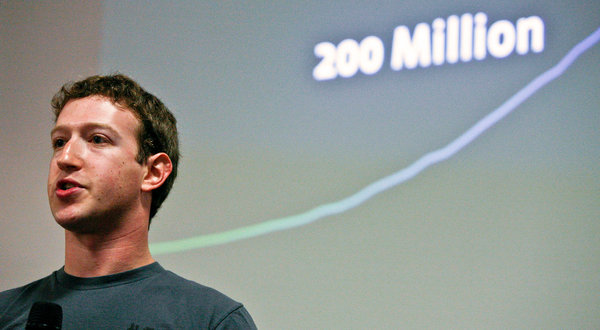Back in 2005, long before they began approaching $10 billion in annual revenue, everyone thought that Facebook was a cool app, but no one thought that it would ever make any money. Observers laughed at the idea that Facebook could be a real business.
With that backdrop of doubters and detractors, Noah Kagan, employee #30 at Facebook, pitched Mark Zuckerberg with what he thought was a genius idea: prove the Facebook skeptics wrong and show them that the fledgling startup could make real money.
As Kagan recounts the story, Mark listened to the pitch and then wrote out one word on a whiteboard: “GROWTH.” Then he “proclaimed he would not entertain ANY idea unless it helped Facebook grow by total number of ‘users.'”
To Zuckerberg and other Silicon Valley luminaries like PayPal billionaire Peter Thiel, the secret to productivity is this: focus is singular. You don’t get three or four or five. You only get one.
Peter Thiel’s “One Thing” Philosophy of Extreme Focus
Peter Thiel, the first outside investor in Facebook, shares a similar philosophy on productivity and management that he developed while turning PayPal into a billion-dollar company.
In the words of former PayPal executive Keith Rabois, Thiel “would refuse to discuss virtually anything else with you except what was currently assigned as your #1 initiative.” If Kagan had tried to have a meeting with Thiel to pitch a new a new idea, they wouldn’t have even gotten to the whiteboard. Thiel wouldn’t discuss anything but your top initiative.
PayPal’s annual review forms reflected this ruthless focus. You don’t get to brainstorm and make a top 10 list to show off all your accomplishments. All employees got to do was write down their “single most valuable contribution to the company.”
Thiel’s tactics might sound extreme but his insistence on focus as a leader gave the drastic principle real teeth. The counterintuitive thing is that this apparent constraint actually empowered Thiel’s employees. Rabois, one of Thiel’s lieutenants at PayPal, explains:
The most important benefit of this approach is that it impels the organization to solve the challenges with the highest impact. Without this discipline, there is a consistent tendency of employees to address the easier to conquer, albeit less valuable, imperatives. As a specific example, if you have 3 priorities and the most difficult one lacks a clear solution, most people will gravitate towards the 2d order task with a clearer path to an answer.
As a result, the organization collectively performs at a B+ or A- level, but misses many of the opportunities for a step-function in value creation.
(via Is Peter Thiel’s “one thing” management philosophy a good model for startups?)
With distractions cleared away, Thiel allowed every person in the company to seriously pursue their only priority “with extreme dispatch and vigor.” Granting employees a singular focus encourages a clarity of thought and mission that can drive people to perform at A+ levels.
Multitaskers Fail, Those with Focus Succeed
It turns out that for personal productivity, multitasking is one of the worst things that you can do.
Stanford researcher Clifford Nass conducted a study where he gave participants different tasks to do in order to figure out how the brain works — and he was shocked by what he found.
[M]ultitaskers are terrible at every aspect of multitasking. They’re terrible at ignoring irrelevant information; they’re terrible at keeping information in their head nicely and neatly organized; and they’re terrible at switching from one task to another.
On the other hand, researchers have shown having the ability to direct your focus to disregard impulses and distraction — maintaining “cognitive control” in psychological terms — has been shown to be a more powerful long-term predictor of future financial success than IQ and wealth.
In a thirty-year study, psychologists followed the trajectory of over 1,000 New Zealand children to find that those who became the most successful weren’t the smartest or the most well-heeled. They were the children who had shown the greatest self-control. And it’s focus, or control over the mind, that holds the key to self-control.
* * * * *
Focusing on a single, high-impact priority can be the critical advantage for getting things done — whether it’s for yourself or with your team.There are a lot of smart people out there, and a lot of people who have money to spend to make things happen. Your ability to focus and manage yourself amidst the rising tides of tasks, distractions, and ideas is what will set you apart.
To Zuckerberg and Thiel, if you allow yourself to have more than one focus, you’ve already accepted the probability of mediocrity. By its very definition, focus doesn’t function when you’re diffracting your attention.
Make your focus ruthless. Focus on just one thing, and you’ll put your organization and your own personal productivity on the path to doing your best work and achieving excellence.

